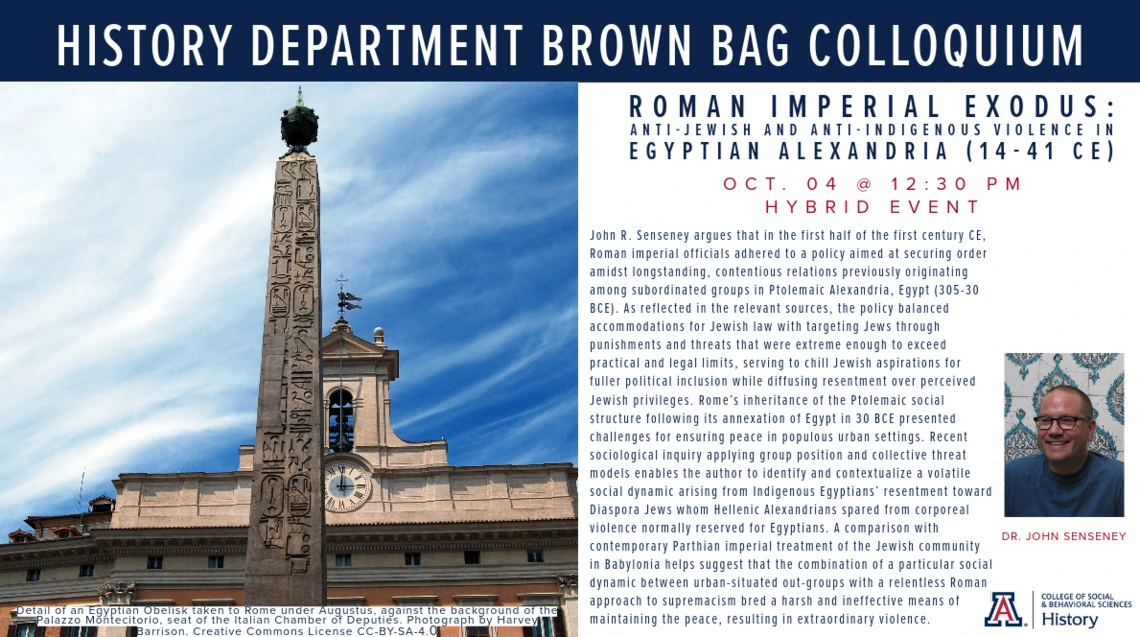
When
Where
Associate Professor and Director of Graduate Studies, Department of History at UArizona, John Senseney
October 04, 2023, at 12:30 PM
John R. Senseney is Associate Professor and Director of Graduate Studies in the Department of History at the University of Arizona, where he has taught ancient history since arriving from the University of Illinois at Urbana-Champaign in 2019. In 2021 he published an article in the Journal of the Society of Architectural Historians, which evaluates evidence in support of an epistemological shift from elite patrons and architects in Classical Athens to common and enslaved laborers as the source for new scientific thought founding far-reaching European intellectual developments. That study carries critical implications for recognizing the creative agency and innovations of enslaved Black workers who built monuments credited to well-known White elites in the early United States, as explored in his articles “Towards Equitable Histories of Ancient Built Environments” and “Lessons from American Arcadia: White Spaces, Black Athletes, and Insulated Professors” (both published in Platform in 2022). His rethinking of old assumptions drives his long-format overview of Greek and Roman architects in the new edition of the Oxford Classical Dictionary published last month. He currently serves on the Editorial Advisory Committee of the Journal of the Society of Architectural Historians. Earlier work includes The Art of Building in the Classical World (Cambridge University Press, 2011) and articles in various journals and edited volumes supported by an NEH Advanced Fellowship from the American Research Institute in Turkey.
John R. Senseney argues that in the first half of the first century CE, Roman imperial officials adhered to a policy aimed at securing order amidst longstanding, contentious relations previously originating among subordinated groups in Ptolemaic Alexandria, Egypt (305-30 BCE). As reflected in the relevant sources, the policy balanced accommodations for Jewish law with targeting Jews through punishments and threats that were extreme enough to exceed practical and legal limits, serving to chill Jewish aspirations for fuller political inclusion while diffusing resentment over perceived Jewish privileges. Rome’s inheritance of the Ptolemaic social structure following its annexation of Egypt in 30 BCE presented challenges for ensuring peace in populous urban settings. Recent sociological inquiry applying group position and collective threat models enables the author to identify and contextualize a volatile social dynamic arising from Indigenous Egyptians’ resentment toward Diaspora Jews whom Hellenic Alexandrians spared from corporeal violence normally reserved for Egyptians. A comparison with contemporary Parthian imperial treatment of the Jewish community in Babylonia helps suggest that the combination of a particular social dynamic between urban-situated out-groups with a relentless Roman approach to supremacism bred a harsh and ineffective means of maintaining the peace, resulting in extraordinary violence.
This event will be offered in a hybrid format offering attendees the option to join virtually via Zoom or in-person in Chavez 406A.

